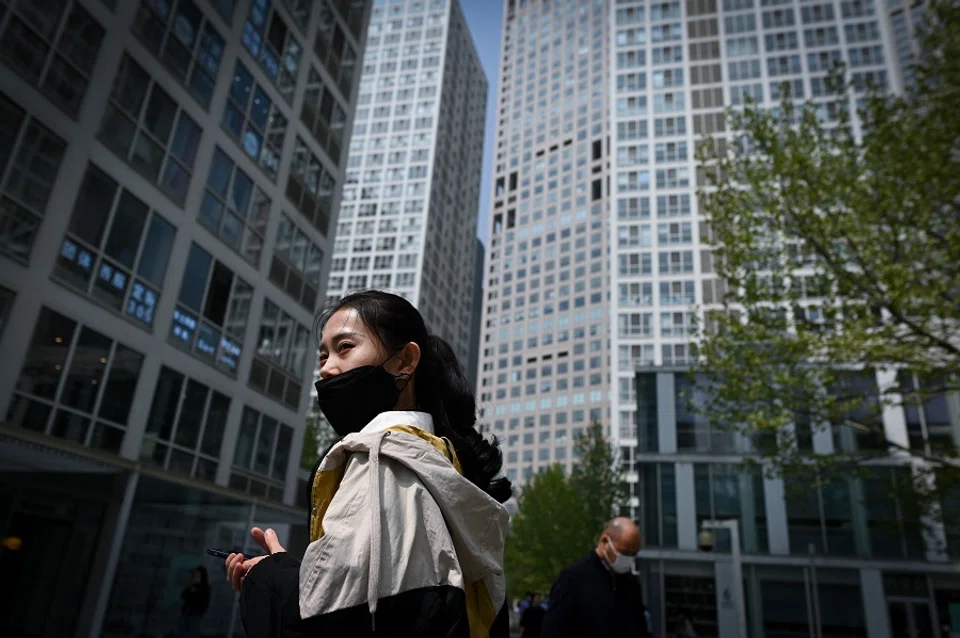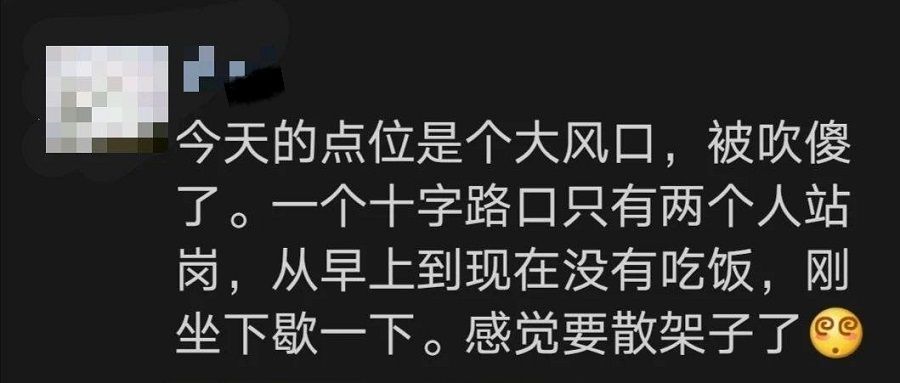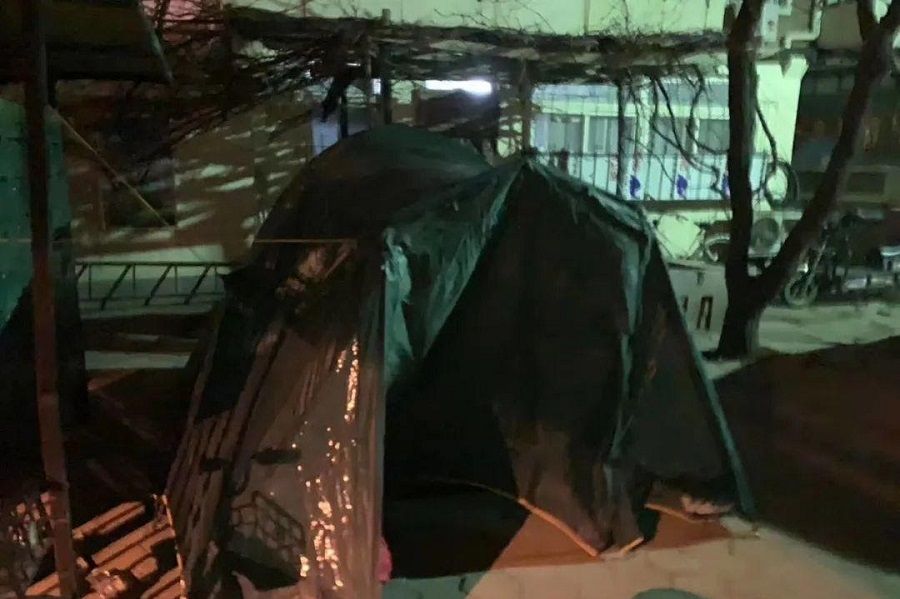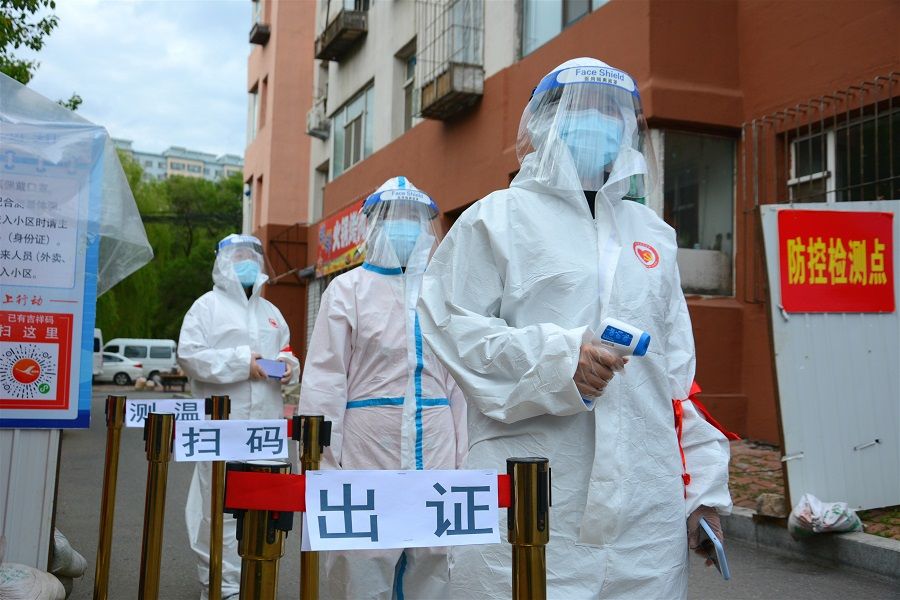China's grassroots civil servant and her story battling the Covid-19 pandemic

When young Chinese academic Lorna Wei was quarantined in Chengdu for 14 days recently following a flight from Singapore, she got a first-hand view of the way Chinese civil servants worked at the grassroots level. She was quite impressed: they seemed to be robots who performed each task perfectly. One of them who took her to the hotel for her quarantine even said that they had worked for more than 50 days continuously. When she got to her hometown district of Fengnan, local government officials asked her to do another 14-day quarantine as the earlier results of two nucleic acid tests and one antibody test from Chengdu did not apply. Wei had to stay at a hotel for two more days and redo the tests as well as get an additional CT scan.
What was it really like being a civil servant at the grassroots level during a crisis so severe as the Covid-19 epidemic? Wei spoke with her university classmate, Miss Dream (a pseudonym), now a civil servant working in a city near Beijing, to find out. Like thousands of civil servants across the country, Miss Dream was deployed to the communities to assist with epidemic prevention efforts. From her experience, the iron rice bowl of a civil servant seems more of a bane than boon.
The secret to China's victory over Covid-19 lies in the efforts that the civil servants at the front line have made.
As a grassroots civil servant at the procuratorate (court) of City T, a city near Beijing, my friend Miss Dream never thought that she had to contribute to containing the outbreak of Covid-19. In 2018, Miss Dream became a civil servant, as it was a secure job that offered literally, an "iron rice bowl" (铁饭碗 tie fanwan) in mainland China. A civil servant's job is a decent and secure occupation as its name "iron" indicates. The iron is stable, and so is the position of a civil servant in the governmental system (体制内 tizhi nei). Though it is hard to be recruited, Dream was lucky to be the only one who got the offer to fill the position in her unit (单位 danwei).
Dream's job is to organise legal files at the procuratorate. However, in 2020, the outbreak of Covid-19 shattered Dream's dream. "I chose to be a civil servant because it is a decent and stable job. I never thought that I would need to become a soldier one day," said Dream. On the second day of Spring Festival (26 Feb), Dream was called back by her unit. She said this call was compulsory and if she did not report back within a short time, she would have lost her job. After a three-day quarantine at City T, Dream began her mission.
"Today, I'm stationed at a terribly windy location. I feel as if I'm about to be blown numb. There are only two people at a cross junction and I haven't eaten since morning. I just had the chance to sit down for a break. I feel as if I'm falling apart." - Dream
Mission impossible
The mission was called "helping the common people" (下沉支援 xiachen zhiyuan). It required the civil servants to inform every resident in communities of City T to stay at home. They also needed to block the communities and stand guard at the entrance of each community. "I thought standing guard was temporary. But it hasn't ended, even now. It's already May," said Dream.
The compulsory guard duty often involved double shifts. Dream grumbled, "I'm almost freaking out. I didn't take my vacation during the Spring Festival, and I was sent to stand guard day and night without any rest. I have no weekends. What's worse, I got the order to organise files before the outbreak of Covid-19, and my leader asked me to finish it on time. How can I manage two jobs?"
"I am so terrified to be infected. The real number is far more than the reported..." - Dream

For civil servants like Dream, a double shift is a must-do. Millions of them were allocated to airports, the Center for Disease Control and Prevention (CDC), hospitals, and communities. Most of them had no relevant experience but had to act professionally, which made them face tremendous pressure when balancing their own work and anti-epidemic affairs.
"I am so terrified to be infected. The real number is far more than the reported," said Dream.
It is not easy to work at the front line with little professional training. Dream was very anxious when she had to contact the suspected or confirmed cases at her appointed communities in early February. When I asked her whether there was any mental support given to them, Dream seemed speechless. "You're thinking too much," said Dream. I beg to differ. Standing guard is not only a mental or psychological challenge, but also a physical one, especially for a woman.
The leaders, who are afraid of being questioned by the central government, make complex and tedious procedures to "shirk" responsibilities if needed. These procedures inevitably double or triple the workload of the grassroot civil servants.
Dream's team suffered a lack of supplies in February and March. Though Dream's unit offered some tents for them to have a rest, not all tents were of good quality. What was "unimaginable", in Dream's words, was that they were not provided with any extra stipend. "It is said that these are hard times. The party members must contribute. If you don't act voluntarily or enthusiastically, you may lose your 'iron rice bowl'," said Dream. Lacking material and mental support seems to be "normal" under hard circumstances.

When China achieved an initial victory to contain Covid-19 in April, Dream was hoping to have a good rest. However, her dream didn't come true. According to the orders issued by her unit, she had to continue to stand guard, even until late at night. Women finally gain gender equality through Covid-19. They must act the same way as men do despite their safety concerns.
"I'm almost on the brink of collapse," said Dream. "I'm just like a sandwich biscuit which is squeezed by two sides." The grassroot civil servants have to deal with huge pressure from their leaders and the common people. The leaders, who are afraid of being questioned by the central government, make complex and tedious procedures to "shirk" responsibilities if needed. These procedures inevitably double or triple the workload of the grassroot civil servants. "I've taken so many shifts. The work is endless," said Dream.
"Our name won't be written or heard in the history of containing Covid-19," said Dream, "but I know I do the work according to my own conscience."
Some residents at Dream's appointed communities did not understand these unnecessary procedures either and they vented their anger on the grassroots civil servants. Some people did not wear masks, broke into the quarantine areas and even quarrelled with the civil servants. "I understand them," said Dream. "There have been no cases at City T for a long time. But T is so near Beijing, and the mayor is afraid that there would be a case again. Our work is meaningless now, but we must stay."

The "meaningless" work that Dream mentioned was to take residents' temperatures at the entrance of each community. It is hot at City T in May and the temperature gun even showed 40 degrees Celsius at times. "The residents look at us and they don't know why we are doing these 'meaningless' work. They think we are fools," said Dream.
"Some residents even think that we deserve this because we are civil servants who have a secure job," added Dream. "But now I think being a civil servant is meaningless." Though frustrated by the unimaginable workload without any extra material or mental support, Dream still works hard at managing her own work and guard duty. Dream usually shares her stories with me after midnight when she finishes her daily anti-epidemic duty. "Our name won't be written or heard in the history of containing Covid-19," said Dream, "but I know I do the work according to my own conscience." Humanity is the only thing we can rely on. I salute the numerous nameless heroes in our midst.
Related: Wuhan lockdown doctor and her story battling the Covid-19 pandemic | Power of the people invaluable in China's fight against Covid-19 | Wuhan doctor Cai Yi: 'We are the Little Folk - we!' | [Photo story] Everyday heroes: Selfless acts in the face of adversity | When the only option is fraud: How institutional faults led to the spread of the coronavirus in Wuhan
